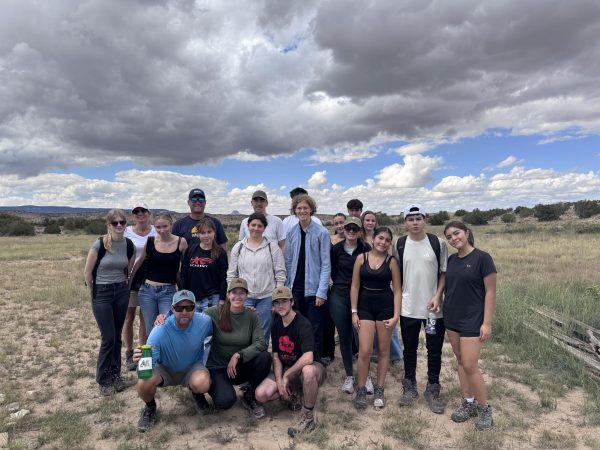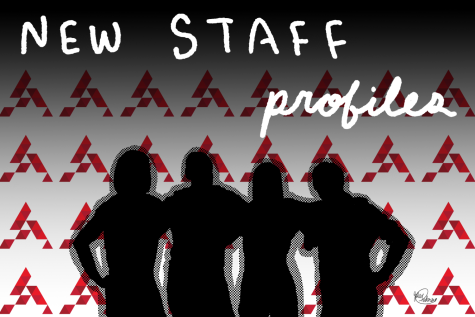What’s up with woke?
The story of a word without meaning.
Woke is a word which seems to have only gained momentum over the past five years. Perhaps the most prominent and loudest voice to begin using the word is Florida Governor Ron DeSantis. DeSantis and other conservatives from centrists to far right Republicans favor the term as a weapon to attack Democrats, and, more specifically, progressivism. While conservatives primarily use woke when talking about aspects of culture like critical race theory (CRT) or trans rights, it has been expanded to include other sources of Republican grief, most recently climate action. The word has taken on a charged and negative connotation, but it wasn’t always this way. Woke went from a niche slang term in the Black community to a conservative buzzword, an epic historical journey.
A simple definition of “woke” courtesy of Merriam Webster: aware of and actively attentive to important societal facts and issues (especially issues of racial and social justice).
The first step to understanding “wokeness” is establishing how it has changed over time; and it has changed a lot. Woke, according to linguist Tony Thorne, first appeared in a Black liberationist play as far back as 1971, in which one character says, “I must stay woke.” The idea behind wokeness goes back even further; according to linguist Deandre Miles-Hercules, the idea of being “awake” to social and political injustices can be pinned back to works and rhetoric by Jamaican activist Marcus Garvey from as early as 1923. Ironically, one of the term’s first appearances in popular media was in a 1962 New York Times article by William Melvin Kelley describing white appropriation of Black vernacular, which is exactly what occurred with woke in the last decade.
Despite woke’s use in the 20th century, its usage remained isolated to Black communities; the term did not truly gain national traction until 2014. (“Stay woke” had a revival about six years prior to 2014 but was used as slang to describe attempts to stay awake or have awareness about a cheating partner, rather than having any political connotations.) The 2014 murder of unarmed Black teenager Michael Brown by a white police officer in Ferguson, Missouri, and the nationwide protests which followed saw the first time that woke blew up in pop culture. #StayWoke became a rallying cry declaring the need for awareness to social injustice, specifically against Black people, seen in the word’s revival through media like Childish Gambino’s single, “Redbone,” and Jordan Peele’s oscar-nominated film, Get Out, which received both unprecedented critical acclaim as well as critical analysis and criticism. This initial faithfulness to woke’s original idea wouldn’t, perhaps couldn’t, last much longer.
Shortly after woke’s revival in the wake of Ferguson, it began to receive criticism from both those on the left and on the right, labeled by liberal activists as superficial, and by the latter as… too liberal. What began in 2014 as a renewal of a niche term and a rallying cry in spreading awareness around social justice concerns shifted with its newfound popularity and increasing use among white “allies.” The increasing use of the term among white groups between 2017 and 2018 led to a phenomenon described in author Jennifer Delfino’s thesis as “the figure of the white ally… constructed… via raciolinguistic chronotopes of ‘white virtue,’ which is the idea that whites who can identify racism are good people who cannot themselves be racist.” This perversion of wokeness as a slang term by liberal whites began to lead to disillusionment with using the term, a concept of linguistic reappropriation in which African Americans are well versed.
But the term didn’t fade, for as the word and its usage received criticism from those on the left, others on the right began using the term with a definite negative connotation to attack the amorphous blob of ideas the word had come to represent–inclusivity, critical gender and race theories, awareness of systemic violence, and more. This new usage was the latest era in a devolution from powerful agitator, to white guilt-easing tool, to conservative buzzword used to rally opposition against any number of talking points.
The ever-changing definition of woke is best understood in terms of a floating signifier, also known as an empty signifier, which is a symbol or signifier, in this context a word, which “absorbs” meanings users place on it. Though woke was not always a word devoid of meaning, this is what it has become in popular media; Florida governor Ron DeSantis probably understands woke’s simultaneous meaninglessness and ability to take on many meanings best. It is his “culture war” which has recently and most prominently popularized the word as an attack against progressive social justice viewpoints, especially LGBTQ+ and race issues. Conservatives, especially DeSantis, took the word whose original meaning was already lost in pop culture’s contradictions and turned it into a political tool similar to “politically correct” before it. Woke’s meaninglessness is what made it so effective and attractive for conservative political figures, serving to take on the form of any grievance they wanted to place upon it.
While the word itself is not problematic, except perhaps as an annoyance, the importance it has taken in defining the right’s crusade on progressivism has had more consequences. In Florida, DeSantis has made combatting wokeness a central theme of his legislative agenda through bills like the “Stop W.O.K.E. Act” and the “Don’t Say Gay” bill, which have significant implications for free speech. Most recently, Republicans in Congress have taken aim at “woke capitalism,” specifically at the system of assigning bond environmental, social, and governance (ESG) scores, used as a core decision-making factor by much of corporate America. Lower ESG scores can hurt investors’ borrowing costs. A recent measure passed in Congress to stop allowing some retirees to factor in ESG scores when thinking about how to invest ultimately led to President Joe Biden’s first veto.
The extended conversion and perversion of woke from 2014 to now marks a combination of factors, most importantly white appropriation of Black slang and conservatives’ use of buzzwords to attack progressive standpoints. The combination of one after the other in the case of woke created a perfect storm for its centrality in defining a new era of Republican attacks on cultural issues like sustainability, identity, and descriptions of institutionalized racism.
Woke’s future is in the air at this point. Its usage within black communities remains full of its original strength and charged expression. Perhaps these microcultures will maintain woke for what it once was on a small scale, but the word has almost certainly been entirely stripped of its original meaning in macro-level popular culture. It may be that the only way for the word to regain its original meaning is by remaining isolated in its usage primarily to black groups as it falls out of style with pop culture, joining politically correct in the graveyard for politicized buzzwords as politicians and personalities latch on to a new signifier.

Darin Eberhardt '25 has been working with the Advocate since 7th grade and joined the Editorial Board in early 2023. Always finding ways to keep his schedule...











